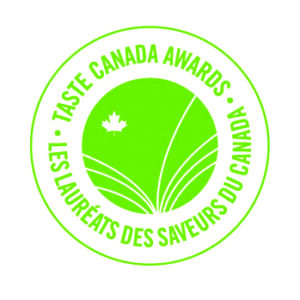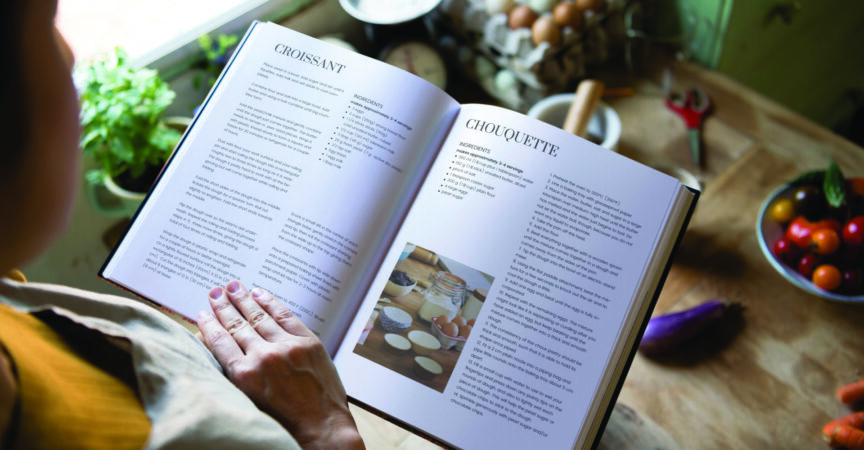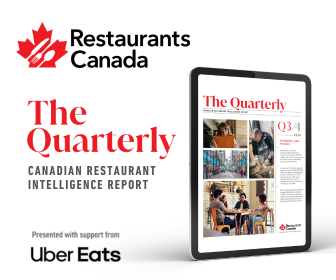Taste, Tradition, and Transformation
In the world of gastronomy, cookbooks are more than just recipe repositories, they serve as historical records documenting cultural shifts, culinary traditions and the ever-evolving flavours of a generation. A glimpse into a cookbook from the 1950s gives you a snapshot of that era, from flavours and cooking techniques to ingredients’ availability to what was considered worthy of serving to guests and family. Cookbooks are time capsules of culinary heritage, and in Canada, they are as diverse as the nation itself. Each year, the Taste Canada Awards represent the best of Canadian cookbooks, inspiring readers to discover delicious recipes, and diverse food stories while subtly documenting shifts in Canadian food culture.
In 2022, the love affair with cookbooks continued in North America, reflecting an unwavering enthusiasm for culinary exploration. According to BookNet Canada, nearly 1.3 million cookbooks were sold in Canada in 2021, highlighting the enduring appeal of culinary literature and a pandemic-inspired renewed interest in home cooking. Canadians purchased more than $45 million in cookbooks, but only 23 percent of those were attributed to a Canadian contributor. Taste Canada is working to change that.
“There so many exceptional cookbooks written by Canadians that people aren’t aware of. We’ve partnered with Indigo to include the Taste Canada Awards shortlisted titles within their online catalogues, and in the hopes of seeing more books with their shortlisted, gold and silver seals placed on their covers,” says Karen Baxter, Taste Canada’s executive director. “We’ve found that once people know the cookbooks are written by Canadians, they’re more willing to purchase them over others. We’re a proud nation and we like supporting our own.”

When asked about the changes she has seen in the cookbooks submitted, Baxter pauses. “Cookbooks are not stagnant – they tell stories about food and culture. They tell readers about different flavours, document moments and also new identities that are finding roots in Canada,” states Baxter. “There are also new ways of cooking, like instant pots and air fryers that we have been seeing, as well as more cookbooks focused on health, wellness and specific diets. We also see evolutions and trends. For example, one of our shortlisted cookbooks this year is Butter & Flower which has cannabis-infused recipes,” mentions Baxter. As well, the other four shortlisted cookbooks in the Health or Special Diet category are based on plant-based recipes, signalling a shift in consumer interests and at-home cooking preferences. These changes are how unknowingly, cookbooks start to become historical documents. Through the pages there are changes in consumer eating habits and cooking methods.
Shifts in supply chain or home cooking are noticeable based on ingredients that were once challenging to find that are now available in the local grocery store. Pressure cookers and air fryer recipes now sit side-by-side with traditional recipes. But like many family recipes, the stories are what connects the cook to the recipe. “The canvas is constantly being populated with passionate voices,” states Baxter. “There are amazing authors that are putting out work that isn’t a traditional cookbook. It’s a narrative that connects the food to the stories, sometimes, their own personal journey.”
One example Baxter cites is Out of Old Ontario Kitchens by Lindy Mechefske, a 2019 Taste Canada Gold Prize winner. A journey into the heart of Ontario’s culinary history, the cookbook offers a window into the past with recipes, pictures and profiles of people who contributed to the province’s culinary history. Rich with photographs and illustrations, Out of Old Ontario Kitchens delves into the culinary traditions of Ontario, from Indigenous foods to the influences of various immigrant books. It explores how ingredients and cooking methods have evolved over time. Mechefske’s research into traditional recipes and cooking utensils allows readers to connect with the past through the food people once prepared in these kitchens.
Weaving in recipes with storytelling is makes the culinary narratives category of the Taste Canada Awards Shortlist so compelling. One of this year’s shortlisted books is a memoir by Margot Fedoruk, Cooking Tips for Desperate Fishwives. Fedoruk shares her story from leaving her childhood home and falling in love to and settling and surviving on Gabriola Island. The book is infused with recipes from Fedoruk’s childhood to her new home in BC. From My Ackee Tree by Suzanne Barr to Have You Eaten Yet? by Cheuk Kwan, Recipes and Reciprocity by Hannah Tait-Neufeld and What We Talk About When We Talk About Dumplings edited by John Lorinc, these books may not all contain recipes, but they may show you how their personal identities are shaped and welcomed within the Canadian culinary landscape. “Linking food, recipes and traditions with their stories is inspiring, generous and passionate,” states Baxter.
The Taste Canada Awards continue to honour outstanding Canadian cookbooks, and with cookbook purchases remaining robust, the role of cookbooks in documenting and shaping Canada’s culinary heritage remains as vital as ever. These culinary documents serve as bridges between lifestyles, cultures and lives by allowing people to share their stories, recipes and meals.
The Taste Canada Awards take place on October 30, 2023, at the Fairmont Royal York Hotel. Event tickets are available for those who want a chance to meet the authors and feast on some great food and beverages. For more information about Taste Canada, or to view the full Taste Canada awards shortlist, visit tastecanada.org.










